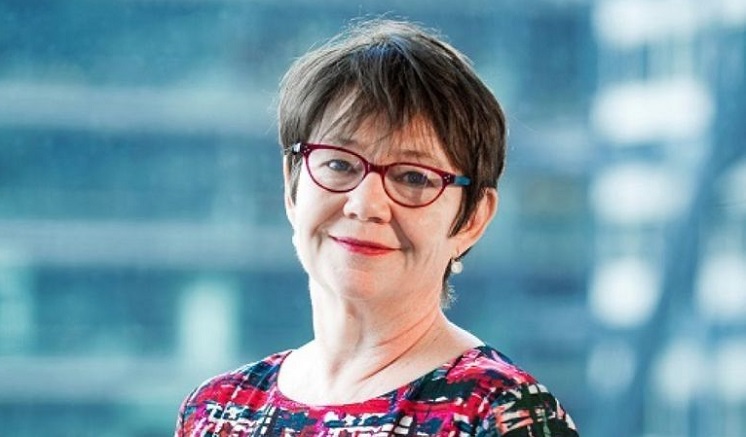EBRD supports Georgian gov’t bid to turn country into logistics hub - president

Odile Renaud-Basso, the president of the European Bank for Reconstruction and Development, is expected to pay her first official visit to Georgia this week. Photo: Forbes
Odile Renaud-Basso, the president of the European Bank for Reconstruction and Development, has pledged the institution’s support for the Georgian government to turn the country into a logistics hub by strengthening intra-regional connections amid increased demands on alternative routes connecting Europe with Asia on the backdrop of Russia’s invasion of Ukraine.
In an interview for Interpressnews, Renaud-Basso stressed “it is true that international carriers are actively trying to diversify transit routes on the backdrop of Russia’s war in Ukraine, and the demand for the Middle Corridor is growing significantly”.
She also said development of the new routes would open up new opportunities for the Caucasus and Central Asia and benefit the domestic economies of the countries along the corridor.
We support the government of Georgia to turn the country into a logistics hub by strengthening intra-regional connections. For example, the bank is helping the country’s transport agency to develop and implement a port community system. We also support the digitisation of the Georgian railway and the development of electronic services related to business”, Renaud-Basso said.
In remarks on Georgia’s European Union membership prospects, the bank president said the EBRD welcomed Tbilisi's efforts to move closer to EU norms and regulations as part of the process towards eventual membership.
We help the country through direct political dialogue, investor councils, technical cooperation projects and targeted investments to further improve the investment environment”, said the bank official, noting EBRD encouraged the national bank and the country’s authorities to develop a non-banking financial sector, as well as further refinement of such financial products as leasing, factoring reform, capital markets, guarantee schemes and others.
 Georgian Prime Minister Irakli Garibashvili said earlier this week that this year’s budget had been planned with a 8.5 percent economic growth forecast (instead of six percent), with the nominal gross domestic product forecast being set at ₾72.2 billion ($26 billion) instead of ₾64.8 billion ($23 billion). Photo: Govermnet of Georgia press office.
Georgian Prime Minister Irakli Garibashvili said earlier this week that this year’s budget had been planned with a 8.5 percent economic growth forecast (instead of six percent), with the nominal gross domestic product forecast being set at ₾72.2 billion ($26 billion) instead of ₾64.8 billion ($23 billion). Photo: Govermnet of Georgia press office.
In comments on Georgia’s economic growth rates, Renaud-Basso said the “higher-than-expected economic growth in Georgia is due to short-term factors, which include high level of remittances from Russia and higher-than-expected income from tourism”.
However, we focus on the stability of Georgia in the medium and long term by promoting local financial institutions, small and medium-sized entrepreneurs and infrastructure, as well as growing renewable energy [and] [b]y investing as well", she said.
On measures to solve the problem of dollarisation, the EBRD chair said that the bank was ready to develop the local currency and capital markets.
If possible, we aim to finance in local currency. In 2016-2021, almost 75 percent of our aid to small and medium-sized businesses was given in the Georgian national currency”, Renaud-Basso noted.
The bank representative is expected to pay her first official visit to Georgia this week as part of her tour in the South Caucasus region between September 12-16, with meetings scheduled with the country’s top officials, diplomats and representatives of financial institutions.
 Tweet
Tweet  Share
Share